Best FDM 3D Printers
3D printing is a wonderful invention! It’s a technology that turns digital designs into solid, three-dimensional objects right before your eyes. A machine builds up layers of material, one tiny slice at a time, until a full object emerges. That’s 3D printing in a nutshell.
For 3D printing, it started in the 1980s, evolving from a concept used for rapid prototyping to a mainstream manufacturing marvel. Initially, it was a tool reserved for industries, helping designers and engineers to quickly create and test their ideas. As the technology advanced, it became more accessible, finding its way into homes, schools, and small businesses. In this article, we’ll explore the best FDM 3D printers.
What is FDM 3D Printing?
FDM, or Fused Deposition Modeling is a big part of the rapid prototyping revolution. It’s a device that functions similarly to a precise hot glue gun, but with plastic. It heats the material until the consistency is just right, then places it one layer on top of another, building your design from the bottom up.
In this article, we’re exploring the top FDM 3D printers in the market, focusing on the variety of materials they work with. From durable plastics for tough parts to flexible materials for objects that need to bend, we’ll discuss them here. This guide is for anyone: beginners, hobbyists and those who want to know more about FDM 3D printers and the top brands manufacturing them.
Best ABS 3D Printers
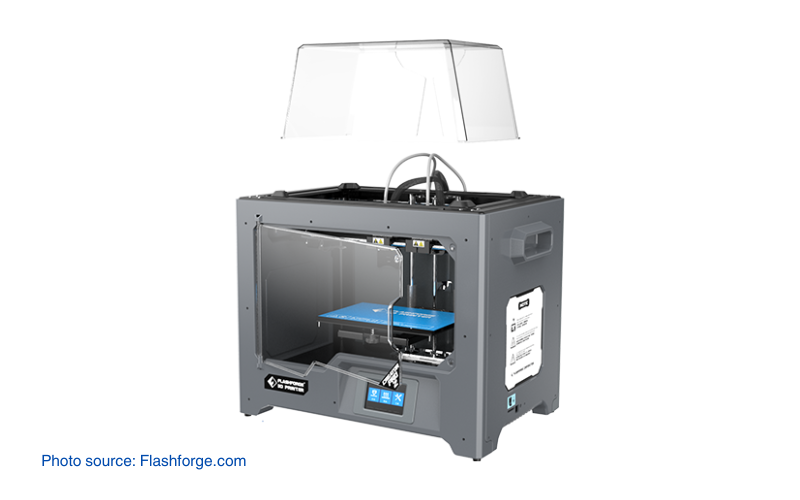
ABS (Acrylonitrile Butadiene Styrene) is a thermoplastic polymer and the most common filament used in FDM 3D printing. This thermoplastic is known for its robustness and resilience which are ideal for projects where durability and strength are priorities. Think of items that need to bear physical stress or high temperatures – ABS is perfect for such tasks.
For ABS, the printer should have a heated bed to prevent warping, and an enclosed space to maintain consistent temperatures. Here are four top-notch ABS 3D printers:
1. Flashforge Creator 2 Pro
This printer is a solid choice for those looking to work with ABS. Its enclosed design helps in maintaining the right temperature during printing, minimizing the risk of warping. Dual extruders also allow for printing with two different materials or colors simultaneously.
2. Creality Ender-5 S1
The Ender-5 S1 stands out for its stable printing performance, thanks to its box-like frame. The heated bed heats up quickly, which is essential for successful ABS printing. Creality has been a crowd favorite for the quality and wide range of 3D printers.
3. Ultimaker S5
The Ultimaker S5 is a powerhouse, favored for its reliability and high-quality prints. Its large build volume, heated bed, and enclosed build environment make it well-suited for ABS. The enhanced bed leveling and filament flow sensors ensure consistent, high-quality results.
4. Qidi FDM 3D Printer Tech X-Plus 3
This printer is a fantastic all-rounder with a heated build plate and enclosed chamber. It’s also versatile, with capabilities to switch between different extruders for high-temperature and precision printing. This model is able to cater to a wide range of projects.
5. Bambu Lab A1
Bambu Lab has carved a niche for itself in the 3D printing industry with their dedication to innovation and quality. They produce reliable and high-performance 3D printers with user-friendly designs and advanced technology. This has earned them a loyal customer base, particularly among hobbyists. Bambu Lab A1 has become popular thanks to its sturdy construction, practical features, ease of use, and exceptional print quality
Best PLA 3D Printers
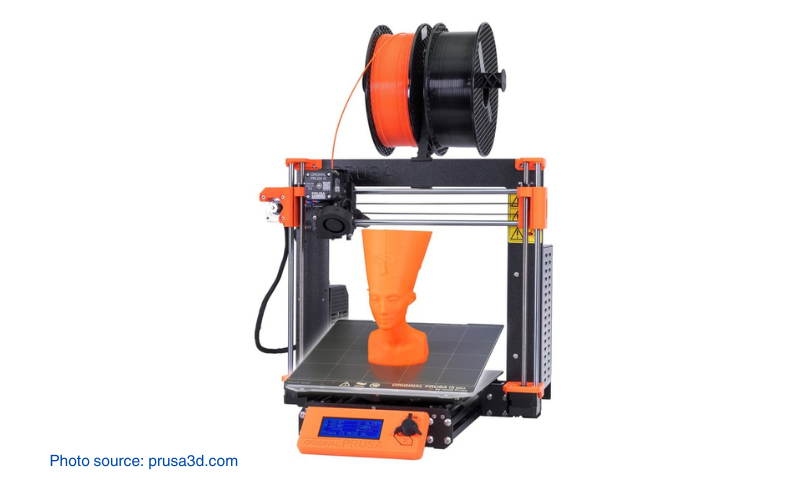
Organic sources like corn starch derive PLA (Polylactic Acid), a biocompatible material. It stands out for its eco-friendliness and biodegradability. It’s a hit in the 3D printing world for its ease of use, requires lower temperatures and no heated bed. This material is incredibly user-friendly for beginners. PLA is fantastic for creating detailed models and prototypes where material strength isn’t the main requirement. It’s ideal for decorative items, educational models, and initial design iterations.
Here are our picks for the best PLA 3D printers:
1. Prusa i3 MK3S
A favorite in the 3D printing community, this printer is known for its reliability and high-quality prints. The Prusa i3 MK3S manages PLA with finesse, with smooth and detailed outputs.
2. Creality Ender 3 V2
Building on the success of its predecessor, the Ender 3 V2 presents an enhanced user experience with improved bed leveling and a more intuitive user interface. Its performance with PLA is exceptional. It’s a popular choice for those looking to produce clean and detailed prints without breaking the bank.
3. Anycubic i3 Mega
This printer is praised for its sturdy build and ease of setup. It features a heated bed and a touchscreen interface for easy operation. It has proven consistent results with PLA and has a hassle-free post-print cleanup.
4. Bambu Lab P1P
The Bambu Lab P1P has quickly made a name for itself with its innovative features and impressive speed. Its ability to handle PLA is exceptional, yielding high-quality prints with fine detail. The P1P stands out for its advanced technology and user-friendly approach.
Best Nylon 3D Printers
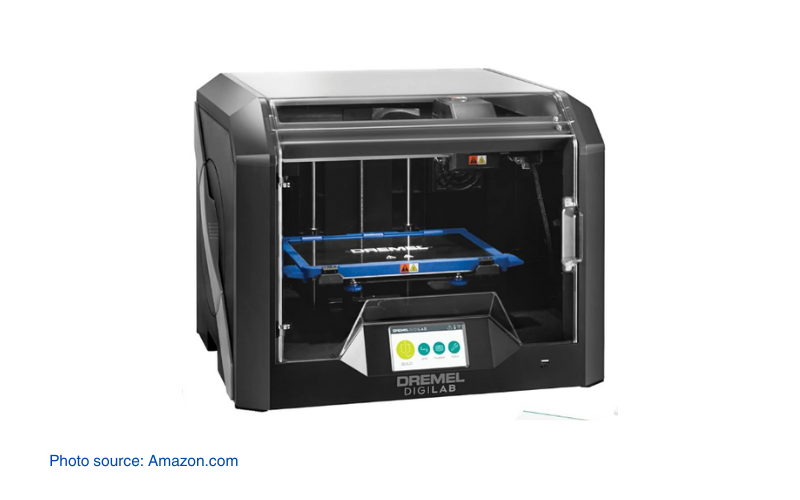
Nylon or Polyamide is a tough and flexible engineering plastic. It’s great for making parts that need outstanding resistance, like mechanical gears or durable prototypes. Additionally, it has a low level of stiffness which means it can be used for semi flexible applications. But, Nylon can be tricky because it absorbs moisture and can warp while printing.
For Nylon printing, you want a printer that can keep things dry and stable. Here are three models we picked for the best Nylon 3D printers:
1. Dremel DigiLab 3D45-01
Dremel’s 3D45-01 is a reliable choice for educators and professionals alike with features like enclosed build space and a heated bed. It has a built-in HD camera for remote print monitoring and RFID recognition of filament for optimal settings adjustments.
2. Raise3D Pro2
This model is known for precision and reliability, with a fully enclosed design that helps manage temperature and reduce warping when printing with Nylon. The dual extrusion system is a plus for using support materials.
3. Taz Workhorse Edition by LulzBot
This printer is exceptional, designed to handle tough materials like Nylon. It’s got a durable build and an all-metal hot end that can reach the high temperatures needed for Nylon, plus a heated bed to prevent warping.
4. Flashforge Adventurer 3
The Adventurer 3 is a compact, user-friendly option that’s surprisingly adept at handling Nylon, thanks to its enclosed build area that helps maintain consistent temperatures and its ability to quickly heat up.
5. Creality Ender 3 S1
The Ender 3 S1 brings several upgrades to the popular Ender series, including a “Sprite” direct drive extruder that improves filament feeding, crucial for flexible materials like Nylon. While it doesn’t come enclosed, creative solutions or aftermarket enclosures can make it more suitable for Nylon.
Best Carbon Fiber 3D Printers
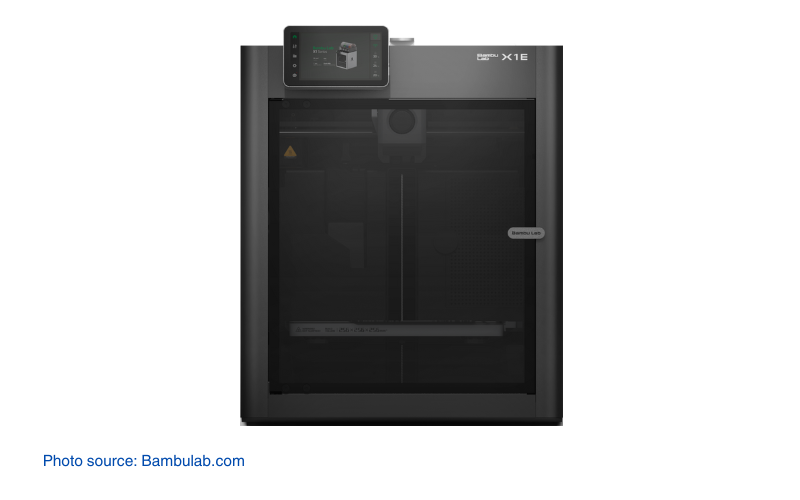
For Carbon Fiber 3D printers, the focus is on creating parts that are not only strong but also lightweight. It is rarely used to print by itself but rather combined with other materials to make composites in order to create stronger but lighter components. Carbon Fiber composites exceed all the other filaments when it comes to strength and heat resistance. It is characterized by extreme toughness, superior impact resistance, low thermal expansion and minimal moisture absorption. This is the go-to for applications such as aerospace, automotive, military and high-performance sporting goods. With all these advantages, carbon fiber needs to be printed with a steel nozzle.
For those looking to print with carbon fiber, here are three models that are well-equipped to be the best carbon fiber 3D printers:
1. Bambu Lab X1E
The Bambu Lab X1E stands out for its speed and precision. It’s designed to handle a variety of materials, including carbon fiber composites, thanks to its high-temperature extrusion capabilities. Its automatic calibration and filament detection systems further ensure a smooth printing experience with carbon fiber materials.
2. MakerBot Method X Carbon Fiber
The Method X is engineered for high reliability and precision, which are key when working with carbon fiber filaments. It features a 100°C heated chamber, which significantly improves the quality of carbon fiber prints by ensuring better layer adhesion and reduced warping.
3. Flashforge Creator 4-S
This model is a solid choice for professional use, with a sturdy build and advanced features suitable for carbon fiber printing. Its independent dual extruders and heated build plate make it versatile for complex prints using carbon fiber materials.
Best Ceramic 3D Printers
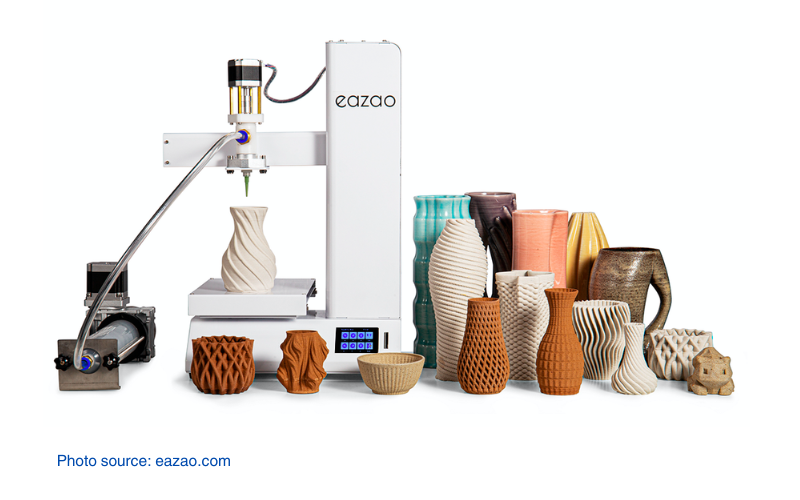
Ceramic 3D printing combines traditional pottery with modern technology. Using this, you can create complex and intricate ceramic objects. This process consists of extruding clay through a 3D printer, layer by layer, to form shapes that are then fired in a kiln. It’s particularly useful for artists and designers who want the look and characteristics of ceramics, as well as in industries like dentistry and electronics that create specialized parts.
For those intrigued by the potential of ceramic 3D printing, here are 3 models for the best ceramic 3D printers to explore with:
1. Eazao Zero
A great entry point for enthusiasts and beginners, the Eazao Zero has a straightforward setup and user-friendly experience. It’s an excellent choice for those exploring ceramic 3D printing without a significant initial investment.
2. 3D PotterBot Micro 10
This printer is specifically designed for ceramic 3D printing and stands out for its precision and reliability. It’s capable of handling various types of clay and is suited for artists and professionals who want to produce detailed and complex ceramic pieces.
3. Delta WASP 2040 Clay
Compact and efficient, the Delta WASP 2040 Clay is ideal for those with limited space. It maintains a high standard of print quality and offers versatility with the types of clay it can print. This is a great tool for personal and smaller-scale professional projects.
Best Aluminum 3D Printers
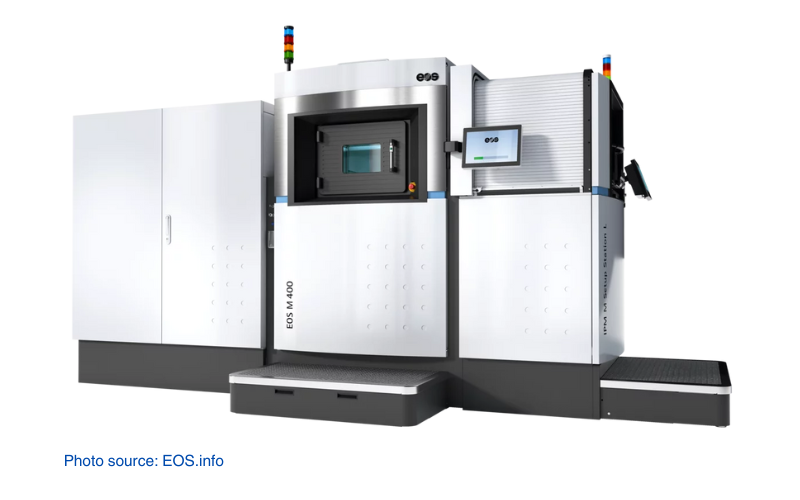
Aluminum 3D printing is a game-changer in the world of additive manufacturing, particularly in sectors that require high-strength, lightweight components like the automotive and aerospace industries. This process involves layer-by-layer fabrication of parts using aluminum powder. Aluminum is ideal for prototypes and functional parts that benefit from its excellent strength-to-weight ratio and corrosion resistance.
These industries use aluminum 3D printing to create complex and custom parts. It allows for rapid prototyping and testing of components such as engine parts, brackets, and structural elements in aircraft.
Two leading brands stand out: EOS and 3D Systems for aluminum 3D printers. Their models designed to meet the high precision and reliability expected of the best aluminum 3D printers:
1. EOS M 400
The EOS M 400 is known for its robustness and high productivity. It is suitable for producing large metal parts with complex geometries. Its precise laser sintering process optimizes for metals like aluminum, ensuring consistent quality in mechanical properties.
2. 3D Systems ProX DMP 320
The ProX DMP 320 by 3D Systems, designed for high-precision, high-throughput direct metal printing, suits aluminum alloys well. It features a large build volume and advanced laser technology, providing the control and detail needed for aerospace and automotive applications.
Best Silicone 3D Printers
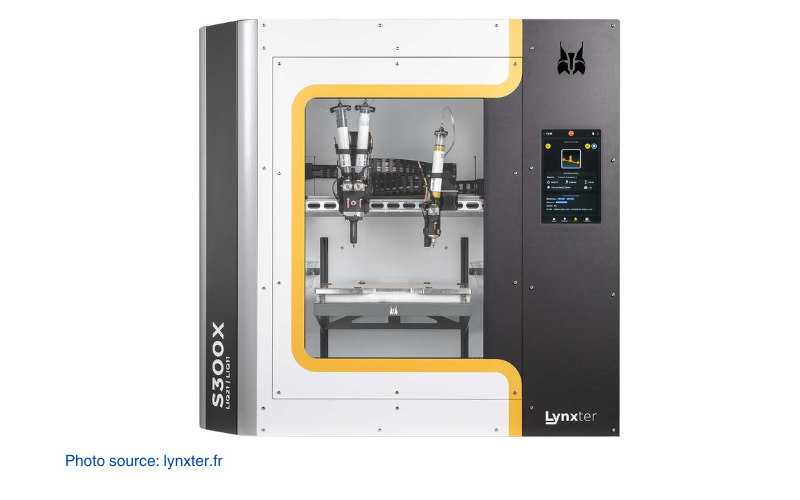
Silicone 3D printing is making significant development in different fields due to its capacity to fabricate items that are both pliable and sturdy, and often suitable for direct contact with the human body. This technology is particularly transformative in healthcare because of its ability to produce tailor-made medical implants and prosthetics. In soft robotics, it enables the creation of components that imitate the pliability of living organisms. Silicone 3D printing is also instrumental in generating precise medical models for education or preoperative discussions. It also develops wearables and innovative textiles.
Two printers stand out for their exceptional output and dependability to be the in best silicone 3D printing:
1. Spectroplast SAM
Known for its precision in crafting parts, particularly suited for health-related applications with its capability for medical-grade silicone, ideal for custom implants and prosthetic devices.
2. Lynxter S300X
This brand distinguishes itself with its adaptability, capable of processing a variety of materials like silicone. It is outstanding in creating complex components needed in soft robotics, medical modeling, and wearable tech.
To wrap up, FDM 3D printing is diverse, with each material serving different purposes. ABS and PLA are versatile for general projects, Nylon and Carbon Fiber are great for strong, functional parts, while Silicone and Ceramic are unique for their specific applications in fields like healthcare and art. Aluminum is crucial for parts requiring lightweight strength, particularly in automotive and aerospace.
We selected the printers mentioned for their compatibility with these materials. They suit a wide audience, from hobbyists to professionals, helping you find a suitable match for your project needs. This guide aims to assist in making an informed printer choice based on material requirements.

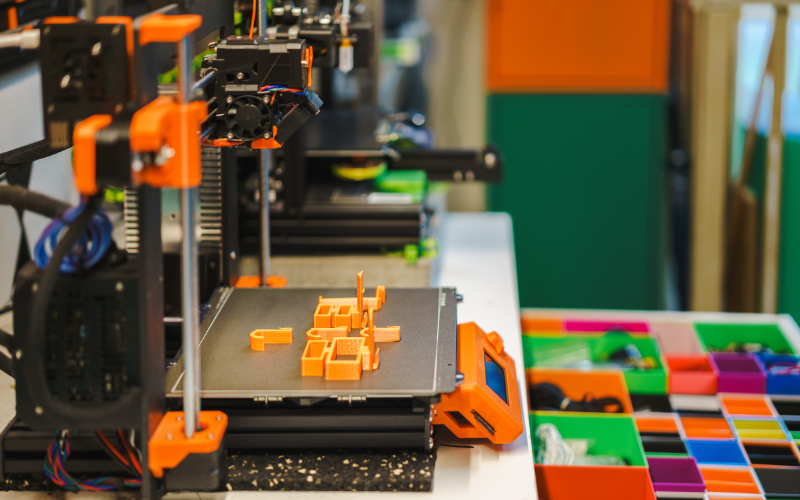
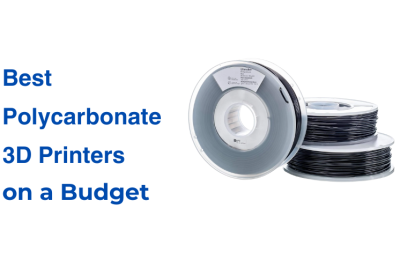
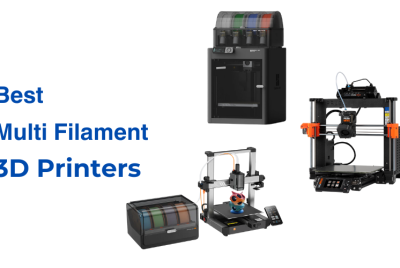
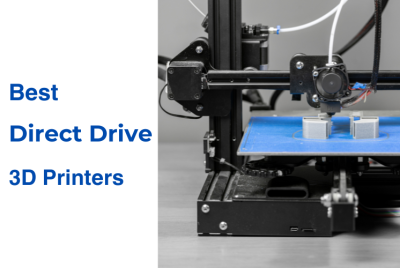
I’m really impressed with your writing abilities and also with the layout
to your blog. Is that this a paid subject matter or did you modify it yourself?
Anyway keep up the nice quality writing, it’s rare to peer a nice blog like this one nowadays.
Instagram Auto comment!
Reading this felt like walking through a gallery of ideas, each one framed with care and presented with clarity. Your words have a way of making the abstract feel tangible, of bringing thoughts into sharp focus. I walked away from this